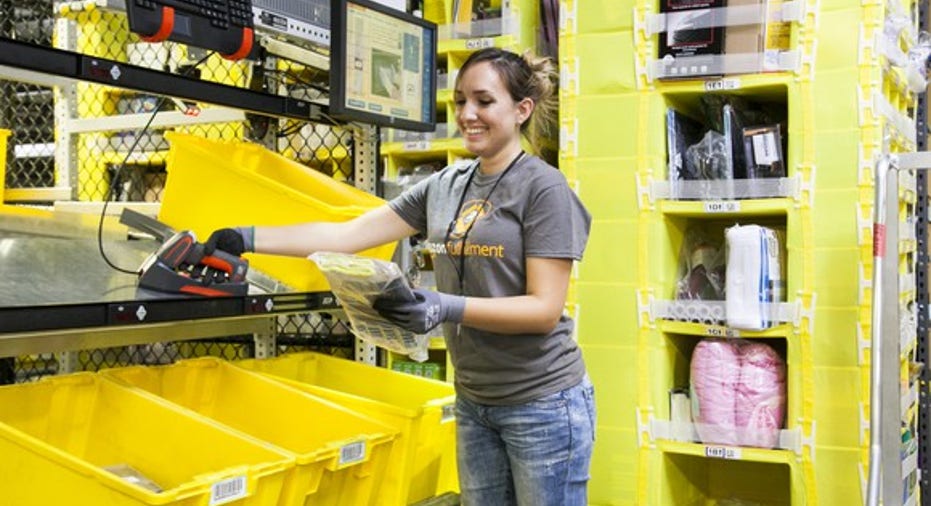Amazon's Investing Heavily in Europe

Amazon (NASDAQ: AMZN) is on its way to "Google" or "Kleenex" territory in the United States. That's to say, Amazon could become synonymous with online shopping. It already makes up 34% of all online commerce in the country, and analysts at Needham predict it will generate the majority of online sales by 2021.
The biggest driving force behind Amazon's growing popularity in the U.S. is Prime, the two-day shipping subscription service that comes with a host of other perks. Consumer Intelligence Research Partners estimates Amazon has about 80 million Prime members in the U.S.
Now, Amazon is making a big push for Prime in Europe by buying up about 1,300 small warehouses throughout the region. The new distribution points will serve to expand Prime Now, its one-hour delivery service for Prime members.
Image source: Amazon.
Pushing Prime in Europe
Amazon Prime remains incredibly U.S.-centric. The program was launched in the country, and American members are often given the first taste of every new Prime benefit from streaming video and music to grocery delivery options. After the great success of Prime in the U.S., Amazon simply needs to copy the same playbook in Europe.
Amazon can start by stocking small warehouses in urban centers to support Prime Now and Amazon Fresh, its grocery delivery service. Analysts expect Germany to see a rapid expansion in online grocery delivery, according to a report from eMarketer. Amazon's warehouse purchase plans include taking advantage of that market opportunity.
Meanwhile, France is experiencing a decline in average order volume, but an increase in total orders. That makes Prime the perfect service for France as it offers free shipping on orders regardless of their size.
Overall, Europe's e-commerce market is worth an estimated $545 billion. For reference, Amazon's sales totaled just $44 billion in all markets outside of North America last year. That's just 55% of Amazon's North American sales of $80 billion. Growing Prime membership should get Amazon's share of the European market closer to the level it sees in the U.S.
Management told us this was coming
For investors who paid attention during Amazon's fourth-quarter earnings call,management told us it planned to shift away from investing largely in the U.S. "I can't give an exact split of the investments by geography, but I would say most of the fulfillment expansion was in North America last year," CFO Brian Olsavsky said. "We see that being more balanced over time, and being more global as we move forward."
Amazon's first-quarter guidance implies negative incremental margins. Olsavsky explains that's an impact of the step-up in capital investments the company started making in the second half of last year. Each new fulfillment center has fixed costs for opening it, as well as variable costs, such as labor, to get it up and running. Importantly, it takes a couple years before a fulfillment center is running at maximum efficiency, which means there's a relatively long span of time before Amazon starts seeing a strong return on investment.
While Amazon's plans in Europe involve smaller warehouses that should take less time to ramp, the sheer abundance of them means it could still be a while before Amazon gets all of them running in an efficient manner. Additionally, as it's an investment in Prime, investors will see the biggest return from increased Prime signups. With so much market share left for Amazon to take in Europe, it's an investment well worth making.
10 stocks we like better than AmazonWhen investing geniuses David and Tom Gardner have a stock tip, it can pay to listen. After all, the newsletter they have run for over a decade, Motley Fool Stock Advisor, has tripled the market.*
David and Tom just revealed what they believe are the 10 best stocks for investors to buy right now... and Amazon wasn't one of them! That's right -- they think these 10 stocks are even better buys.
Click here to learn about these picks!
*Stock Advisor returns as of April 3, 2017
Adam Levy owns shares of Amazon. The Motley Fool owns shares of and recommends Amazon. The Motley Fool has a disclosure policy.



















